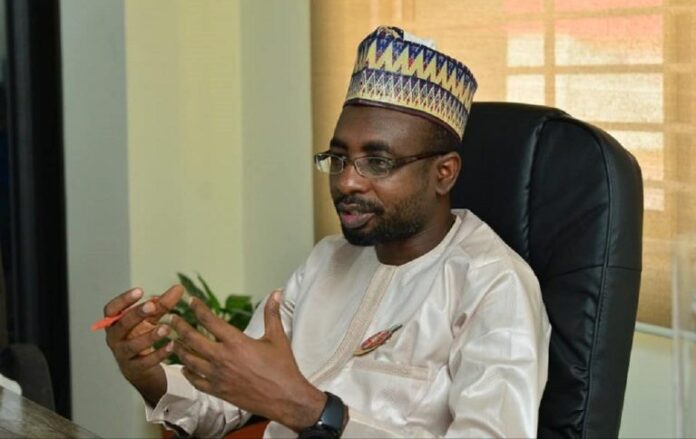Smart City Solutions to Nigeria’s Urban Areas
By Inyene Ibanga
TECH DIGEST – There is never a dull moment in Nigeria’s tech space. From one programme or initiative to another, the digital technology sector is ever-vibrant, with trending stories, applications, and innovations. As usual, the sector lived up to its dynamism during the outgoing week.
Every day, tech companies/startups are striving to unveil innovative technologies to solve the numerous problems confronting the people and the local environment. And this is a trending reality about the technology sector in Nigeria.
Recently, the National Information Technology Development Agency (NITDA) announced the participation of five Nigerian startups in this year’s Smart City Summit and Expo (SCSE), organised by the Taipei Computer Association.
Sponsored by NITDA, the Startups, VNTS, LexChain, Powerstove Energy, Blieu Technologies, and Schoola would participate in a three-day professional trade show that focuses on addressing the growing demand for sustainable development and solving urban issues.
The summit/exhibition covers various categories of innovative technologies such as smart epidemic prevention, smart health care, smart transportation, smart education, and smart energy saving.
Others include smart buildings, smart manufacturing, smart security control, 5G solutions, AI-related solutions, and other industry innovations.
Remarkably, the forum offers NITDA’s Director-General, Kashifu Inuwa Abdullahi, the opportunity to discuss Nigeria’s smart City Vision and Strategy, as well as avail Nigerian startups the opportunity to meet potential partners and attract Foreign Direct Investment into the country.
This means that smart applications will begin to play a crucial role in supporting institutions of governance to deliver greater efficiencies, social services, and infrastructure for building smart cities.
Basically, a smart city is one that uses technology to provide services, solve city problems, improve transportation and accessibility, offer social services, and promote sustainability, for its citizens/residents.
Smart cities deploy data to make better decisions and deliver a better quality of life for residents. Also, such cities have smart services, smart infrastructure, and smart maintenance policies.
Building a smart city is capital intensive and requires large investments by government. But in reality, the government does not have to be the sole financier and operator of services and infrastructure system in a smart city.
Therefore, innovative smart city funding includes national or state-level funding, partnership with private companies, competitions, and smart procurement policies.
Today, an estimated 55.7 per cent of people worldwide live in cities. This proportion is projected to reach 66 per cent by 2050, when cities will grow to add about 2.5 billion people to the world’s overall population.
With the fast advancement in technology, many countries are using the concept of the Internet of Things (IoT) and Artificial Intelligence (AI) to build new functional systems that make a city deliver optimal facilities and services to residents.
Previously thought to be futuristic, these new and evolving cities are discovering innovative ways of integrating smart technology and online population to transform normal urban areas into smart cities.
Barcelona (Spain), Detroit (U.S.), Boston (U.S.) London (U.K.), Dubai (UAE), Oslo (Norway), Copenhagen (Denmark), Amsterdam (Netherlands), Hong Kong, and Indonesia are among the over 50 smart cities that are leveraging digital advancements to raise greater efficiencies and productivity in their high-tech economies.
In Nigeria, infrastructure and services in urban centres are overburdened due to the continuous migration of large populations into those areas. Resources are being stretched to the limits, and authorities have recognised the urgent need for new initiatives to help address the problem of overstretched facilities.
This particular sponsorship of startups by NITDA is unique in the sense that it represents an ambitious initiative aimed at helping to lay the foundation for the creation of a ‘smart’ tech ecosystem in Nigeria.
While private developers are already experimenting with the concept of smart estates, the country needs to take it further by piloting full-fledged smart cities/towns in states.
Abuja, Lagos, and Port Harcourt are gradually coming up with smart estates using the Public-Private Partnership (PPP) model of funding. Some foreign investors have started building smart estates in these and other cities.
Since 2016, the Lagos Smart City Project, a notable initiative aimed at integrating human and social capital with smart technologies, is yet to deliver on its core components.
The goals of the project include improved transportation, security and surveillance, infrastructure, network connectivity, and efficiency in governance through the deployment of e-governance.
By developing smart cities, Nigeria stands to harness the awesome benefits of using smart applications to deliver efficiencies in the broad areas of mobility/traffic/transit, healthcare, security, water, energy, waste disposal, economic development, and housing.
Smart-city technologies help cities to fight crime, reduce traffic congestions, prevent and treat chronic conditions through remote-monitoring, make commuting faster, deliver cleaner environments, to enable the residents to experience satisfaction.
Suffice it to say that this seed sowed by NITDA, under the supervision of the Ministry of Communications and Digital Economy will see to the transformation of many urban centres across the country.
Normal cities cannot only shift to smart initiatives through the active participation of citizens. And all citizens should be prepared to actively participate in a successful transition to smart cities.
Besides infrastructure, people have to be equipped with smart connectivity and knowledge to navigate the digital space as a critical aspect of the digital inclusion plan. Entire segments of the population could be excluded from the smart city experience, if such plans are not in place.
As ambitious as smart cities may seem, they have come to stay and Nigeria’s governments need to pool resources with the private sector to make it a reality. Public and private sectors can make it happen by activating smart transparency and smart accountability in their partnerships.
Indeed, the time is ripe for Minister of Communications and Digital Economy, Dr. Isa Pantami to follow up with the FCT Minister on the establishment of Smart Abuja, and also convince our “progressives governors” to buy into the idea.
Inyene Ibanga is Managing Editor TechDigest and writes from Wuye District, Abuja.
















